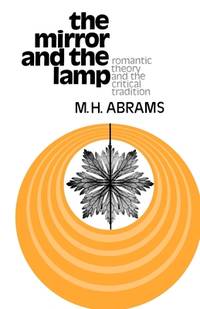
Stock Photo: Cover May Be Different
The Mirror and the Lamp: Romantic Theory and the Critical Tradition (Galaxy Books) Paperback - 1971
by Abrams, Meyer H
- New
- Paperback
Description
New
NZ$134.63
NZ$9.01
Shipping to USA
Standard delivery: 2 to 21 days
More Shipping Options
Standard delivery: 2 to 21 days
Ships from GridFreed LLC (California, United States)
About GridFreed LLC California, United States
Biblio member since 2021
We sell primarily non-fiction, many new books, some collectible first editions and signed books. We operate 100% online and have been in business since 2005.
Details
- Title The Mirror and the Lamp: Romantic Theory and the Critical Tradition (Galaxy Books)
- Author Abrams, Meyer H
- Binding Paperback
- Edition Reprint
- Condition New
- Pages 416
- Volumes 1
- Language ENG
- Publisher Oxford University Press, Oxford
- Date 1971-09-15
- Features Bibliography, Index
- Bookseller's Inventory # Q-0195014715
- ISBN 9780195014716 / 0195014715
- Weight 1.2 lbs (0.54 kg)
- Dimensions 8.5 x 5.5 x 1.1 in (21.59 x 13.97 x 2.79 cm)
-
Themes
- Cultural Region: British
- Library of Congress subjects Literature - History and criticism, Romanticism
- Library of Congress Catalog Number 53007616
- Dewey Decimal Code 809.9
First line
TO POSE AND ANSWER aesthetic questions in terms of the relation of art to the artist, rather than to external nature, or to the audience, or to the internal requirements of the work itself, was the characteristic tendency of modern criticism up to a few decades ago, and it continues to be the propensity of a great many-perhaps the majority-of critics today.
From the rear cover
with this book, M.H. Abrams has given us a remarkable study, admirably conceived and executed, a book of quite exceptional and no doubt lasting significance for a number of fields- for the history of ideas and comparative literature as well as for English literary history, criticism and anesthetics.'
